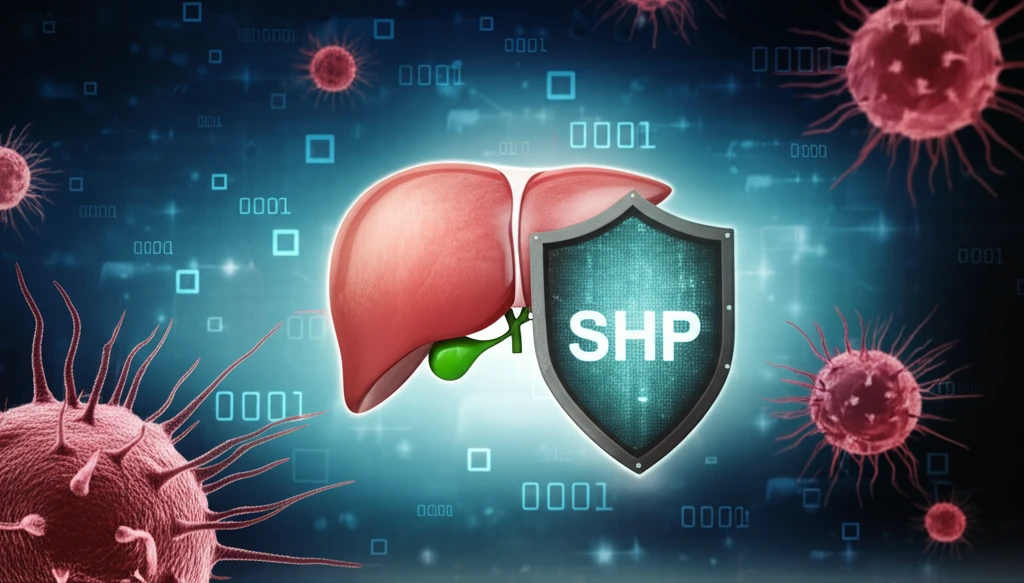
Liver's Silent Guardian: How SHP Protein Can Prevent Hepatitis
"Unlocking the mysteries of SHP and its role in liver inflammation could transform hepatitis treatment."
Fulminant hepatitis (FH) is a severe form of liver failure with limited effective treatments. Small heterodimer partner (SHP, NR0B2), an atypical orphan nuclear receptor, regulates various biological processes. Recent studies have highlighted SHP's involvement in immune responses, particularly in the recruitment of neutrophils during liver inflammation. New insights into SHP's role in modulating liver inflammation could revolutionize therapeutic strategies.
Previous research indicates SHP's regulatory function in innate immunity, modulating pro-inflammatory cytokines through mediators like IRAK1, TRAF6, and NF-kB in macrophages. SHP deficiency exacerbates liver injury by affecting immune cells such as natural killer T cells and neutrophils, increasing susceptibility to conditions like binge drinking-induced liver damage. The link between SHP and neutrophil recruitment, driven by the chemokine CXCL2, is critical, setting the stage for targeted therapies.
This investigation aims to clarify the specific mechanisms of CXCL2 regulation by SHP in the liver and identify the types of cells involved in neutrophil recruitment during liver inflammation. By understanding SHP's role, new treatments for fulminant hepatitis can be developed.
SHP's Protective Role in Liver Inflammation

A new study used bone marrow (BM) chimeric mice to investigate the role of SHP. Shp knockout (KO) or wild-type (WT) bone marrow cells were transferred into sublethally-irradiated WT or Shp KO recipients, followed by intravenous injection of ConA (20-30 mg/kg). The KO recipient groups showed higher ConA-induced lethality than the WT recipient groups. Plasma alanine aminotransferase (ALT) and aspartate aminotransferase (AST) levels, and inflammatory cytokine expressions were significantly higher in the KO recipients regardless of donor genotype.
- SHP Deficiency: Increases susceptibility to ConA-induced hepatitis.
- Neutrophil Recruitment: Augmented in SHP-deficient liver parenchymal cells.
- CXCL2 Regulation: SHP controls TNFa-induced CXCL2, but not CXCL1, expression in mouse hepatocytes.
- Transcription Control: SHP regulates CXCL2 transcription through interaction with c-Jun.
The Future of Hepatitis Treatment
Modulating SHP activity might offer a novel approach for treating inflammatory liver diseases, including hepatitis. By understanding the intricate mechanisms of SHP's action, medical researchers can develop targeted therapies to harness its protective effects and improve patient outcomes.
